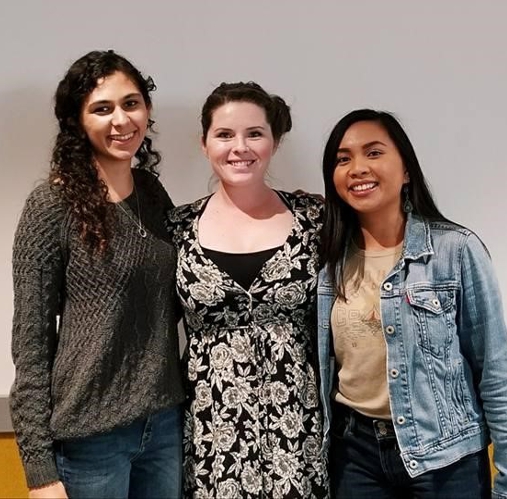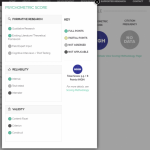Tritons for Gender Equity (T4GE): One of UCSD’s Newest Student Organizations
What is Tritons for Gender Equity?
Tritons for Gender Equity (T4GE) is a student organization at UC San Diego that began its work with campus communities and organizations in April of this year. T4GE is open to anyone affiliated with UC San Diego, including undergraduate and graduate students, postdoctoral fellows, faculty, and staff members, and all other interested individuals from any department, school, division, and field of study across campus. The safe, diverse and inclusive space that T4GE strives to provide allows for the promotion of gender equity on and around our campus by discussing how UC San Diego’s resources, or lack thereof, influence and shape issues related to campus climate, during the week and on weekends. Topics of importance include campus safety, student housing, fun and safe weekend campus culture, and overall promotion of an inclusive and respectful campus community.
The creation of T4GE was inspired by the work of the UC-wide Women’s Health, Gender and Empowerment (WHGE) student ambassador program which began in the fall of the 2017-2018 academic year (and will continue through the 2018-2019 academic year). Michelle Gregorio (undergraduate student), Brittnie Bloom (PhD student) and Sharada Saraf (undergraduate student), Principal Members of T4GE (as shown in photo), are all WHGE Student Ambassadors. In this work they, partner with 25 other graduate and undergraduate students from the nine other UC campuses, which includes UC Hastings College of the Law. Collectively, they discuss and contribute to system-wide research and education focused on the promotion of justice and scientific advances to reduce gender and health inequities locally and globally. In an effort to amplify these efforts on their own campus, Gregorio, Bloom, and Saraf created and launched T4GE to bring focused discussion about equitable gender norms closer to home. Their collective goal is to transparently promote improved health and empowerment of everyone in the UC San Diego community. T4GE’s mission is to foster communication and transformative action so students can work together to improve gender equity (i.e. fairness of treatment and representation) of students of all gender identities, as well as to promote health among ourselves individually and through our relationships by addressing sexual health, reproductive rights, and relationship violence at UC San Diego.
Additionally, T4GE supports Empower UC for Sexual Respect and Safety, the Signature Research Project of the WHGE Center of Expertise of the UC Global Health Institute. This project addresses the issue of campus-based sexual assault and dating violence, both locally and globally. Young women in college have up to a 25% risk of being sexually assaulted during their first two years at a university, which is also known as “the red zone.” T4GE strives to help prevent sexual assault and address the resources that are available, or not available, for survivors dealing with the physical and mental health consequences of sexual assault.
T4GE benefits from a strong base at UC San Diego. We are supported by the faculty and staff of the Center on Gender Equity and Health which is housed in the UC San Diego Department of Medicine, and aims to improve health and development by improving the status, opportunities and safety of women and girls globally.
How do I become a member?
There are no dues or fees associated with membership to T4GE. Interested UC San Diego affiliates must participate in at least two meetings per quarter, and at least once club-led campus activity. Additionally, the affiliated is highly encouraged to join our Facebook group and/or email list.
Contact Us
Facebook: https://www.facebook.com/tritons4ge/
Email: tritons4ge@gmail.com
Authored by: Michelle Gregorio
References:
- Senn, C. Y., Eliaszlw, M., Barata, P. C., Thurston, W. E., Newby-Clark, I. R. Radtke, H.L., & Hobden, K. L. (2015). Efficacy of a Sexual Assault Resistance Program for University Women. New England Journal of Medicine, 372(24), 2326-2335.
- Kimble, M., Neacsiu, A. D., Flack, W.F., & Horner, J. (2008). Risk of Unwanted Sex for College Women: Evidence for a Red Zone. Journal of American College Health, 57(3), 331-338.
- Senn, C. Y., Eliaszlw, M., Barata, P. C., Thurston, W. E., Newby-Clark, I. R. Radtke, H.L., & Hobden, K. L. (2014). Sexual violence in the Lives of the First-Year University Women in Canada: No Improvements in the 21st Century. BMC Women’s Health, 14(1), 135.




